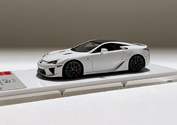| Author |
 Topic Topic  |
|
|
stewil
USA
139 Posts |
 Posted - 03/20/2011 : 05:44:11 Posted - 03/20/2011 : 05:44:11


|
I thought some of you might enjoy seeing these pictures taken last weekend. I have posted some other picture sets on another forum so if you have seen them before, pardon my redundancy. If you would like to see more, just ask. The photo spreads are eclectic but this one is typical.
While looking at the Duesenbergs posed along the lake bank I noticed a number of cars arranged on a small hill across the water. I made my way over for a closer view and was "blown away" by the cars on display - a select grouping of significant racing cars. I hope you enjoy seeing the cars and their associated history.
Cheers and Happy Collecting and Viewing,
Steve
The first that caught my eye was the 1919 Ballot which was an almost exact copy of the 1914 Peugeot which was a copy of the 1912 Peugeot which was designed and raced by "Les Charlatans", who were at the epicenter of one of the greatest stories in racing.
"Les Charlatans" created the 1st DOHC 4-valve engine which led to Miller's then Offenhauser's, and maybe even into the engine in the car you drive. This was and is a big deal.
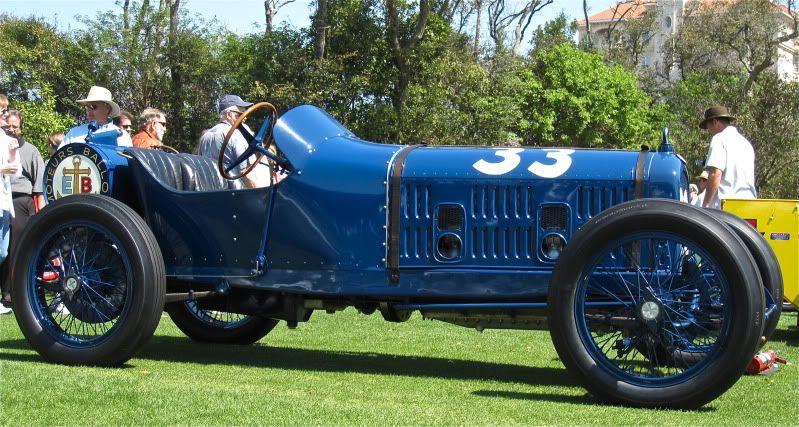
Here are two links:
1st - takes you to a book, start reading at Goux and Peugeot - the story is well worth reading. Wow-this link is huge.
http://books.google.com/books?id=MDMFSp7xTp0C&pg=PA32&lpg=PA32&dq=peugeot+les+charlatans&source=bl&ots=eo1oOtDKQa&sig=97MckSO65yd6KrU658H399g5pWE&hl=en&ei=IReATevsJIO20QG_nvX9CA&sa=X&oi=book_result&ct=result&resnum=2&ved=0CB0Q6AEwAQ#v=onepage&q=peugeot%20les%20charlatans&f=false
2nd - Is a shorter version of the story but it is loses a bit of the flavor.
http://www.ddavid.com/formula1/peug1914.htm
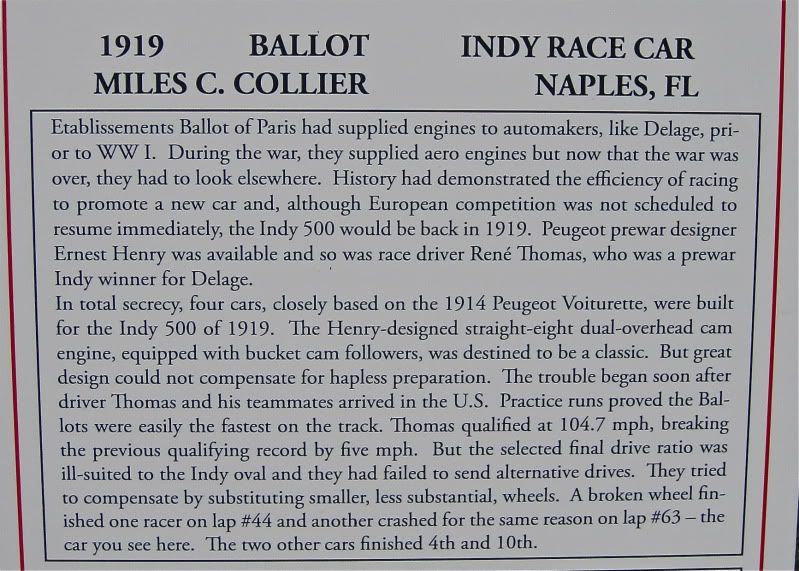
The riding mechanic's fuel pump
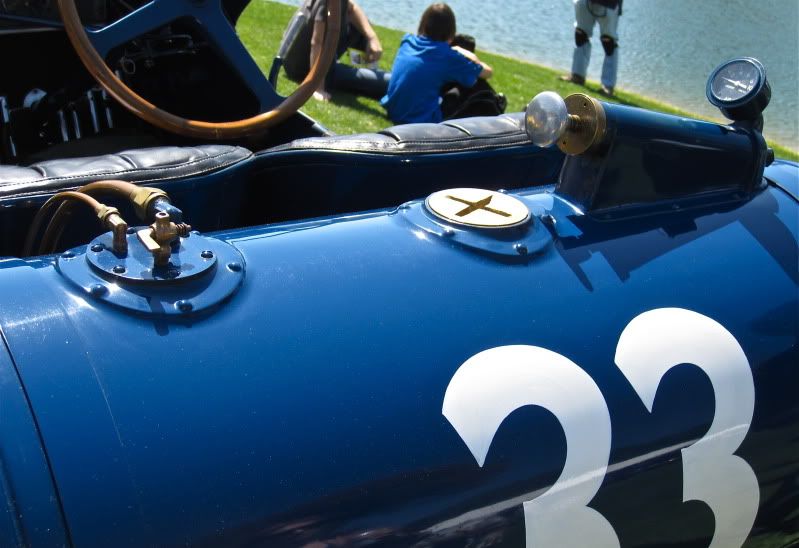
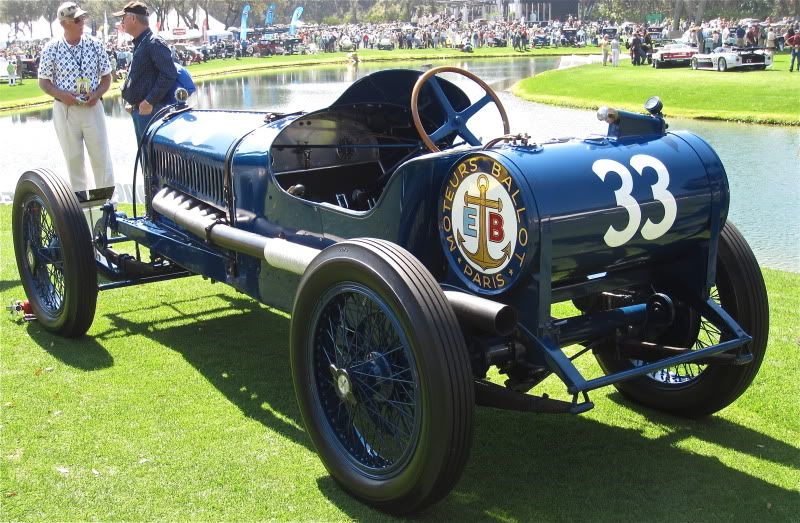
In 1921 four Duesenbergs competed in the French GP. This is the winner, and the only American designed race car to win a GP until Dan Gurney in his Eagle won at Spa in 1968. To date there have been no other American designed and built winners.
The "unfair advantage" that the Doozies' possessed were 4-wheel hydraulic vs. the mechanical brakes of the competition. Jimmy Murphy set the fastest lap at the French GP and he finished 15 minutes ahead of the 2nd place finisher. He and mechanic Ernie Olson traveled 322 miles at a 78.1 MPH average, a record that stood for eight years.
Maybe his winning advantage was due to more than just better brakes, after all it was a Doozie driven by Jimmy Murphy.
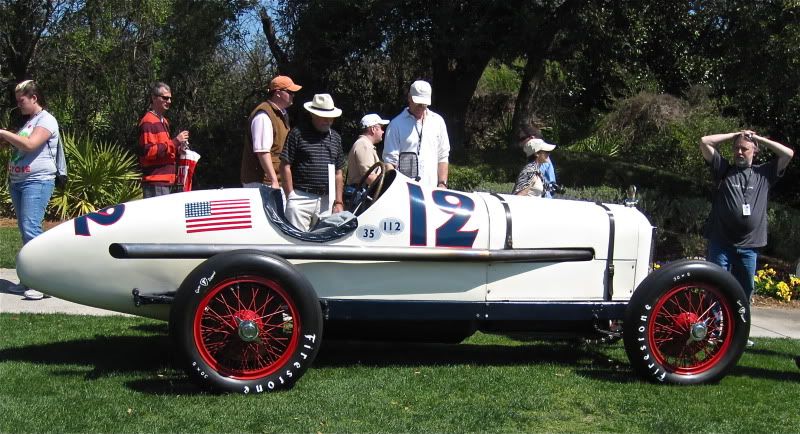
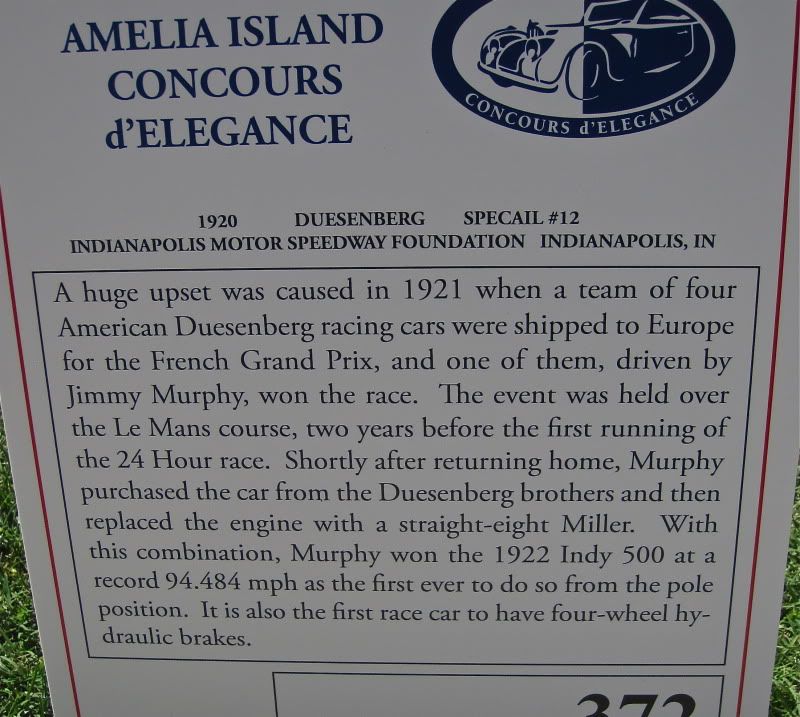
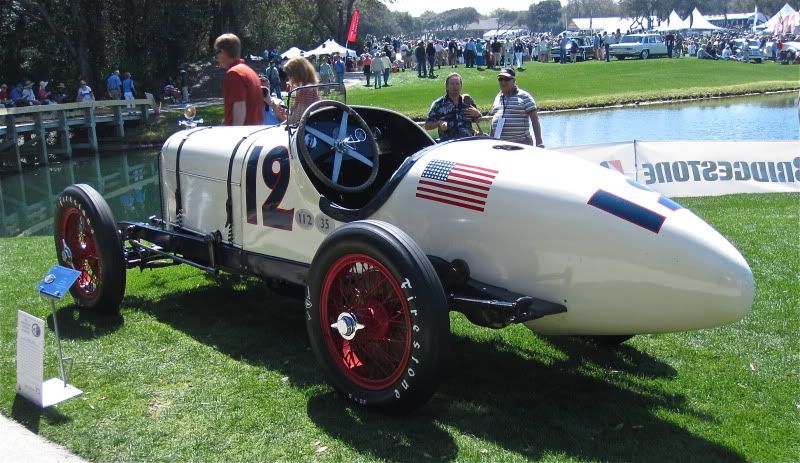
1938 Miller Indy rear engined race car. It took awhile but rear mounted engines are all you see at Indy today.
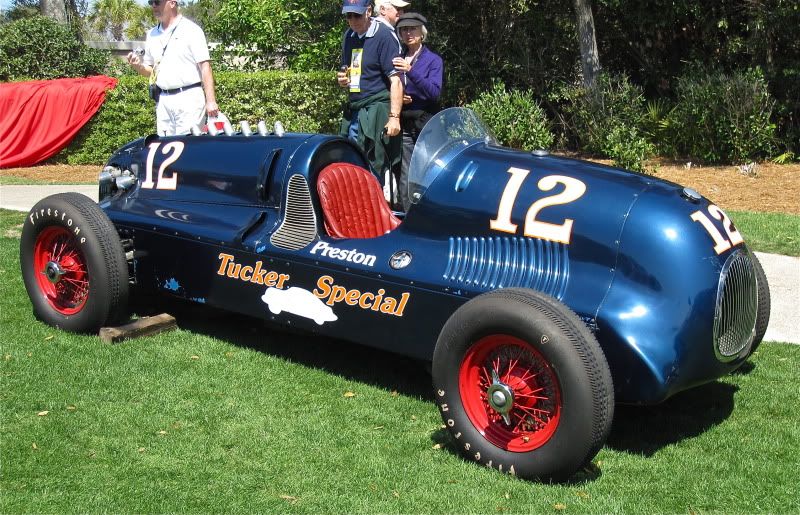
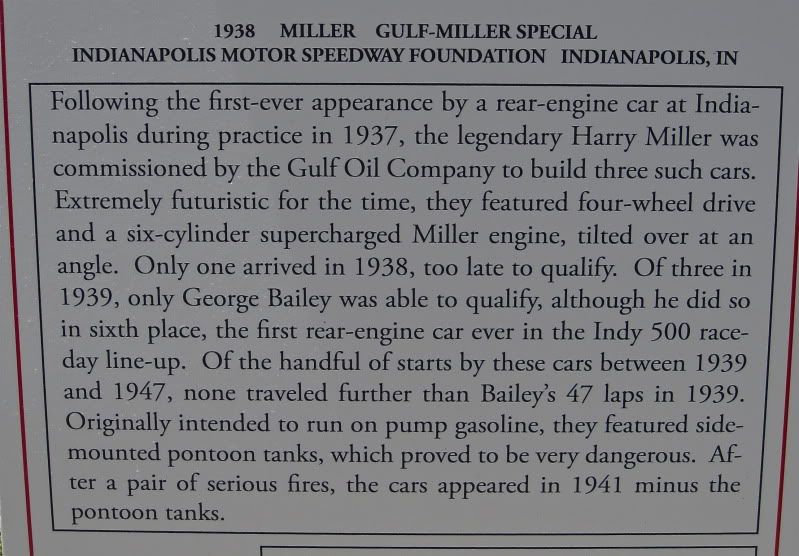
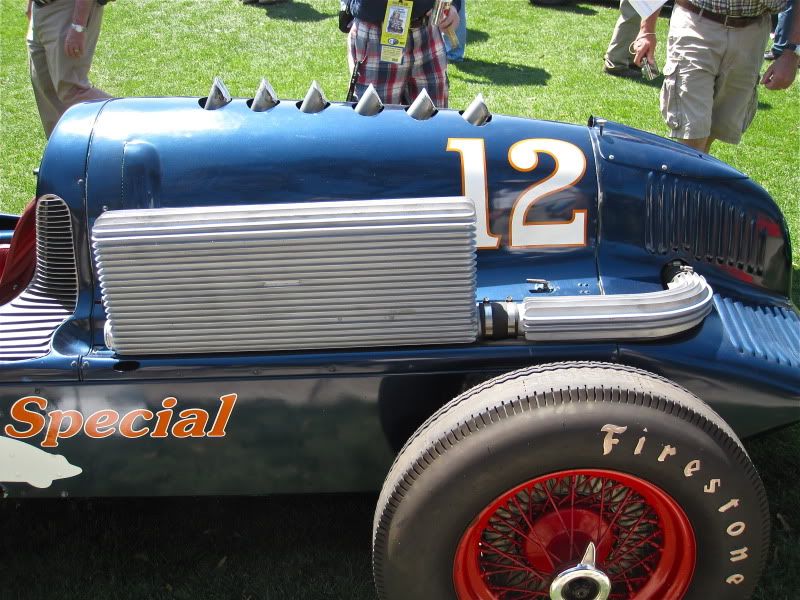
Jim Clark's 1965 Indy Winner. This was the 1st rear engined winner at Indy though not the 1st to run there. Through the early '60's the tides were shifting in favor of rear engined race cars and this one proved the point.
Some consider it as having driven the nail in the Indy Roadster's coffin.
Notice the Cummins Diesel and Watson Roadster in the background, both also significant race cars.
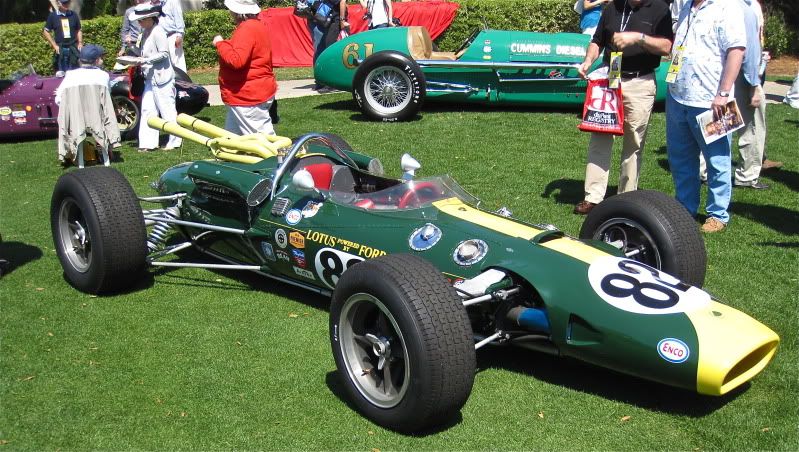
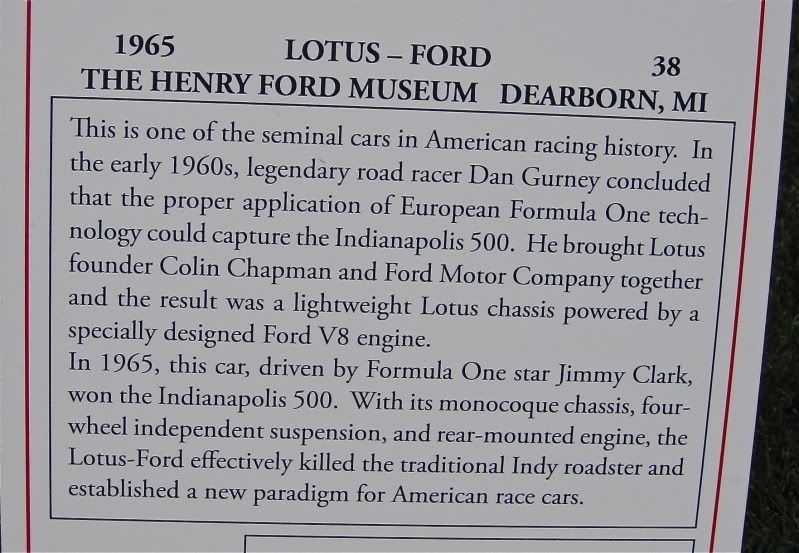
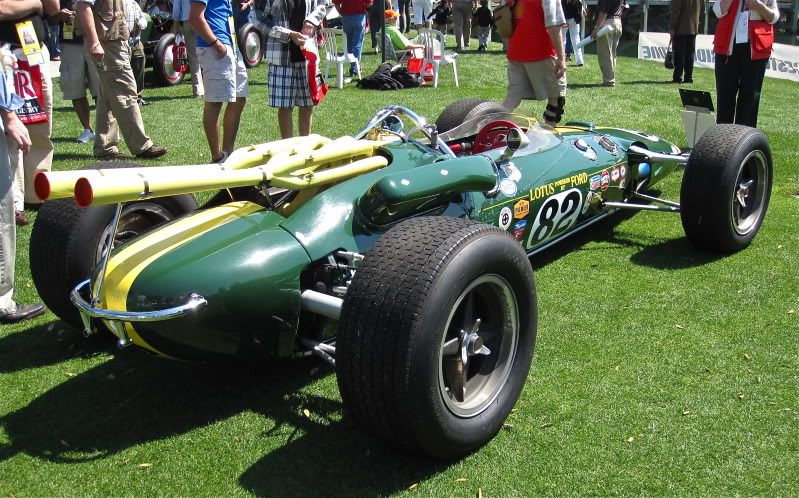
This was Graham Hill's turbine powered Lotus which qualified 2nd in the 1968 Indy 500 at 171.208 MPH. Joe Leonard's turbine qualified 1st at 171.599 MPH.
Neither car finished but outclassed everything else in the field. Turbines were banned and we have never seen them run again, maybe because they were too quiet - and noise puts fans in the seats.
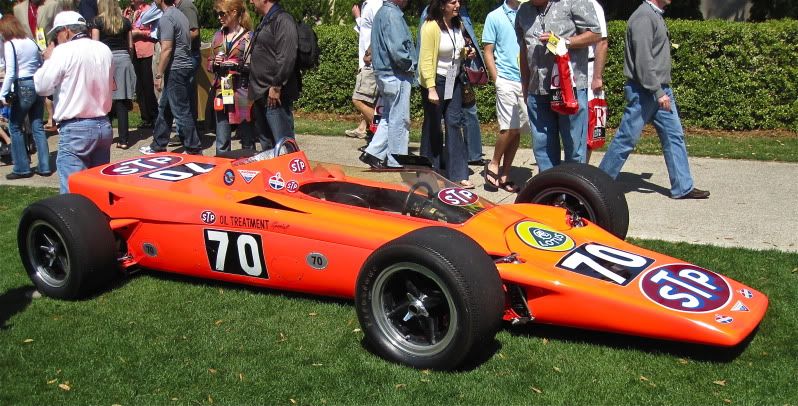
A simple but effective wedge shape.
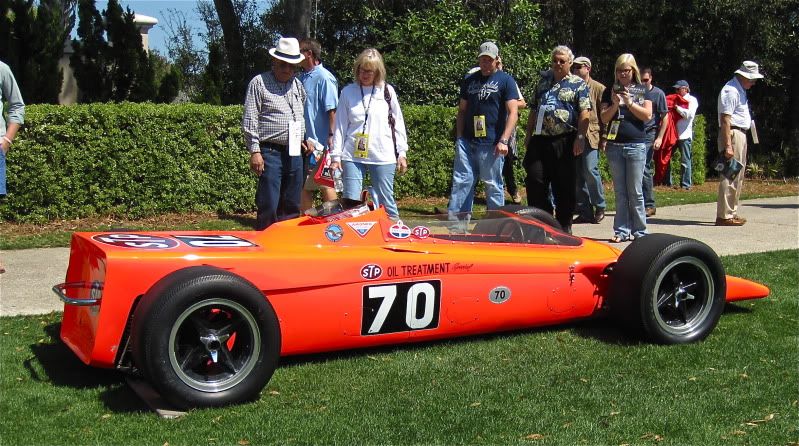
The 1980 Indy winner introduced true ground effects to Indy. Finally designers were getting a handle of how aerodynamics could be used to solve the speed puzzle. The Chaparral closely resembles the earlier Lotus 79 design.
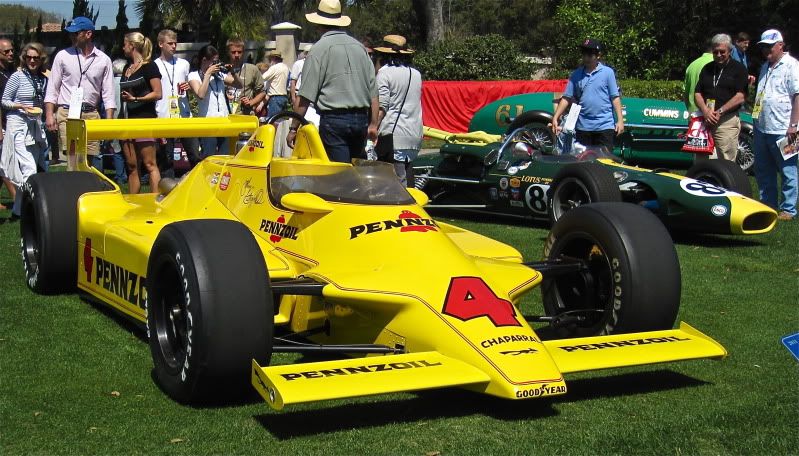
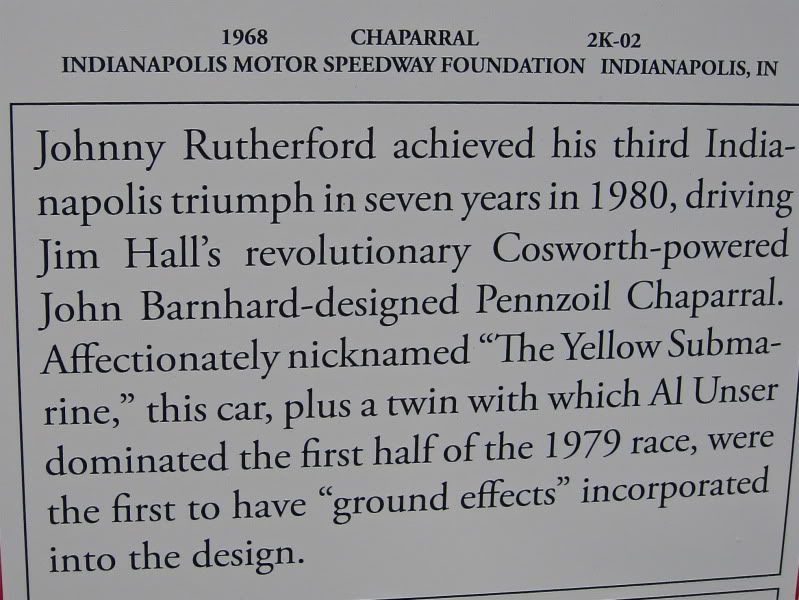
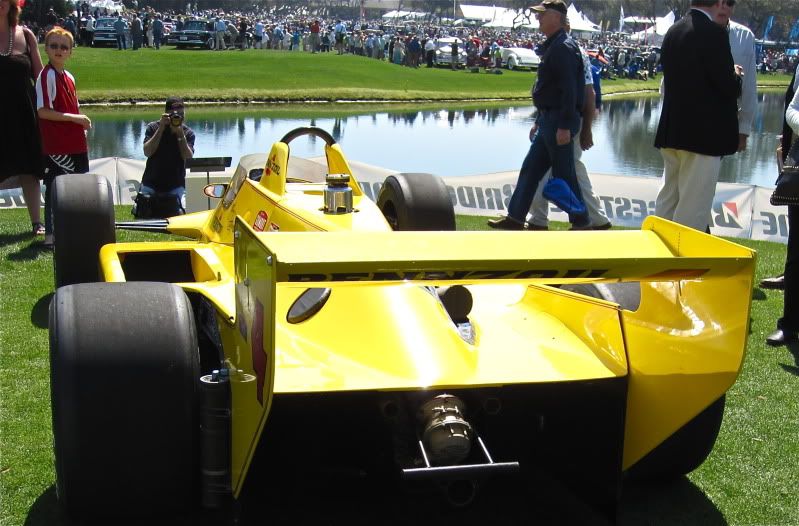
The venturi effect created by the shaped under wing. These cars could travel upside down along a very long and strong ceiling, such is effectiveness of the "ground effect".
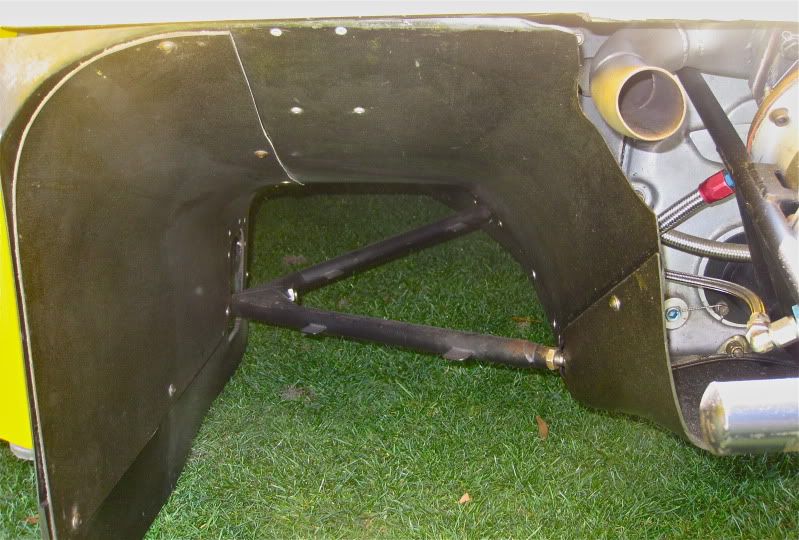
This is Janet Guthrie's Indy Car - the one in which she broke the "female barrier" by being the first woman to race at the Indy 500 in 1977. She finished 29th with engine troubles. She would compete in two more Indy 500s, finishing as high as ninth in the 1978 race. Overall, she competed in 11 IndyCar events finishing as high as fifth.
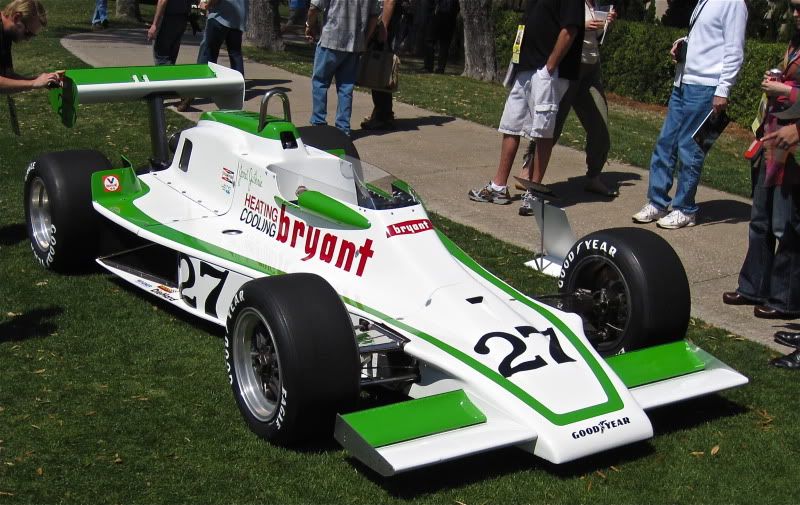

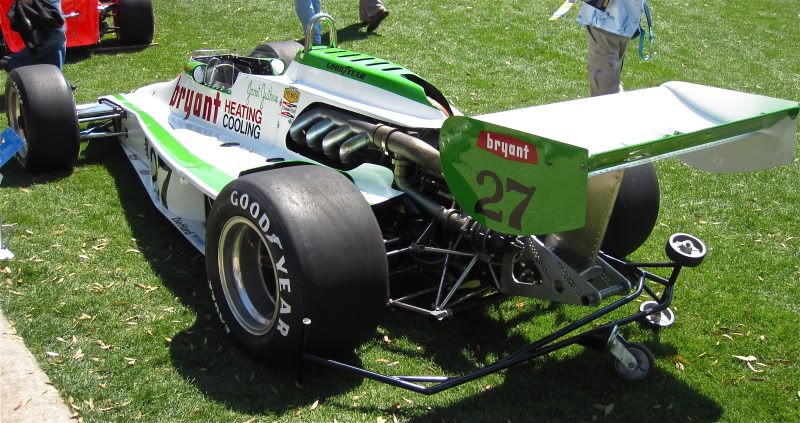
Janet Guthrie Indy Results
Championship (Indianapolis) Cars
* Ninth, Indianapolis 500, 1978, out of 92 entrants
* Fifth, Bettenhausen 200, Milwaukee, 1979
* Qualified 4th to A.J. Foyt, Danny Ongais, and Johnny Parsons, Pocono 500, 1979
* Set fastest time of day on opening day of practice, Indianapolis 500, May 1977; set fastest time of any driver the second weekend of qualifications, May 1977
* Holder of women's world closed-course speed record from 1976, raised to 191.002 mph while qualifying for Indy 500, 1978.
* First woman to enter the 500 and pass the rookie test (1976).
* First woman to qualify for and race in the Indianapolis 500 (1977, 1978, 1979)
Cheers and Happy Collecting,
Steve |
|
| |
 Topic Topic  |
|
|
|
|
